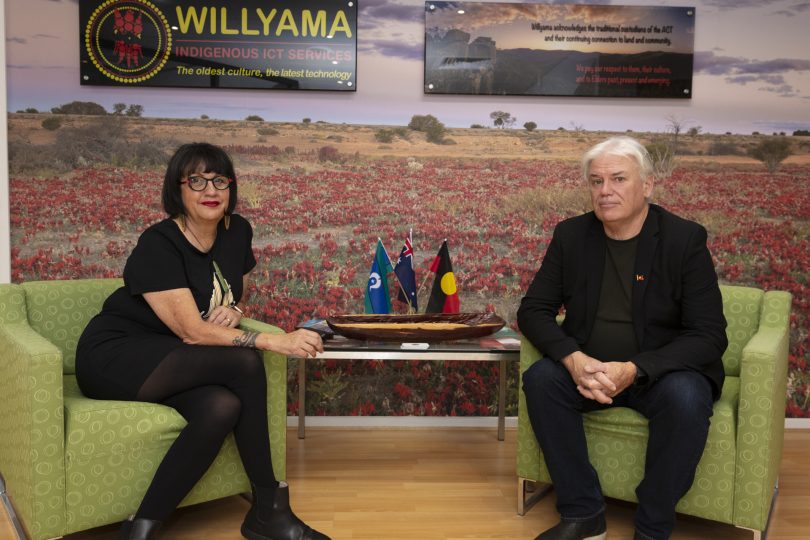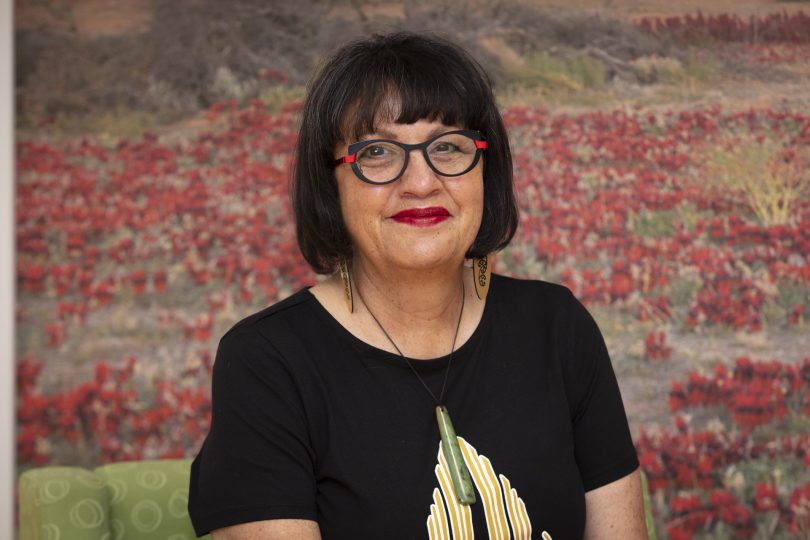
Jo Kamira and Craig Sams founded Capital Workplace so they could do HR differently. Photo: Thomas Lucraft.
Human resources (HR) is one of the elements of work that most of us don’t think about until it becomes unavoidable not to.
One Indigenous-owned HR and cultural training firm, Capital Workplace, is proving that HR doesn’t deserve its bad rap. Instead, co-founders Jo Kamira and Craig Sams say HR is something that, when done well, makes life easier for everyone in the office.
“It’s about being able to bring your authentic self to work and know you’re not going to be ridiculed for being who you are,” says Jo.
The duo met while they were in the Australian Federal Police working on implementing the recommendations of the Royal Commission into Aboriginal Deaths In Custody, particularly those around the need to have a culturally safe and diverse workplace.
It’s from this work and the consolidation of their skills that enabled Jo and Craig to become heavily involved with HR, and eventually founding their own business.
Jo says Capital Workplace mostly works with “businesses that are big enough to need a HR presence, but not big enough to be able to afford the high premiums that come with the bigger firms”.
Their offerings are targeted for Indigenous people, although Jo says their end game is ensuring everyone feels secure and protected at work.
“A lot of Indigenous people have never been taught about expectations in the workplace and so by doing tailored onboarding with them we can alleviate later issues that arise,” she says.
Most of Capital Workplace’s policy work is implementing training around HR obligations regarding bullying.
When it comes to bullying, Jo explains the company works hard to convey the message that everyone has biases, but that it is possible to do something about it.
“We go in and ask, ‘Why is the bullying happening? What biases are at play here?'” she says. “We approach it from the perspective that bias is not inherently bad, it’s just what makes you human.”
This is a different way of tacking HR issues, but the team is unafraid of the hard work.

Jo Kamira says the Capital Workplace team is unafraid to put in the hard yards to tackle complex HR issues. Photo: Thomas Lucraft.
According to Jo, a lot of the company’s input needs to happen in workplaces where people are simply not behaving properly at all.
“A lot of it has to do with the fact that people define themselves by their work,” she says. “You ask someone who they are and they respond with what they do.
“Because we spend so much time at work, when the workplace becomes dysfunctional, our lives then become dysfunctional.
“We can take action such as recommending the organisation takes actions including implementing a code of conduct or launching an internal investigation.”
Jo says sometimes the behaviour they deal with is so inappropriate they are forced to make hard decisions such as firing someone or involving the police.
“We call this ‘taking the hard path’,” she says. “If it’s an instance where people just aren’t getting on well with one another, we work with another Indigenous business that will come in to put the whole thing back together again with methods such as restorative justice or mediation.”
One of the reasons workplaces hire external HR companies is because managers really just want to be liked, says Jo.
“We constantly see that nobody really wants to take an employee aside and have that hard conversation with them so from that point of view it is easier to get us in rather than doing it themselves,” she says.
“On this note, we take our independence very seriously and we make sure we remain impartial and get the job done properly.
“Oftentimes within the workplace, things such as personalities and friendships come into play so it’s our job to stay out of all of that.”
One way Capital Workplace finds new clients is through its partnership with Canberra Indigenous Business Network (CIBN), and Jo says the “amount of support we receive and give back has been amazing and should be exactly what a business network is all about”.












